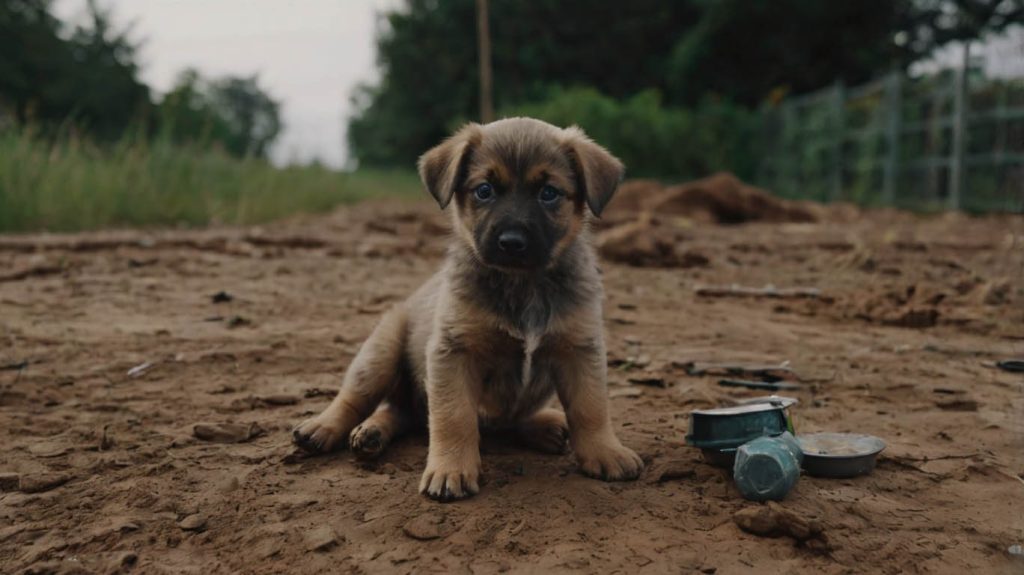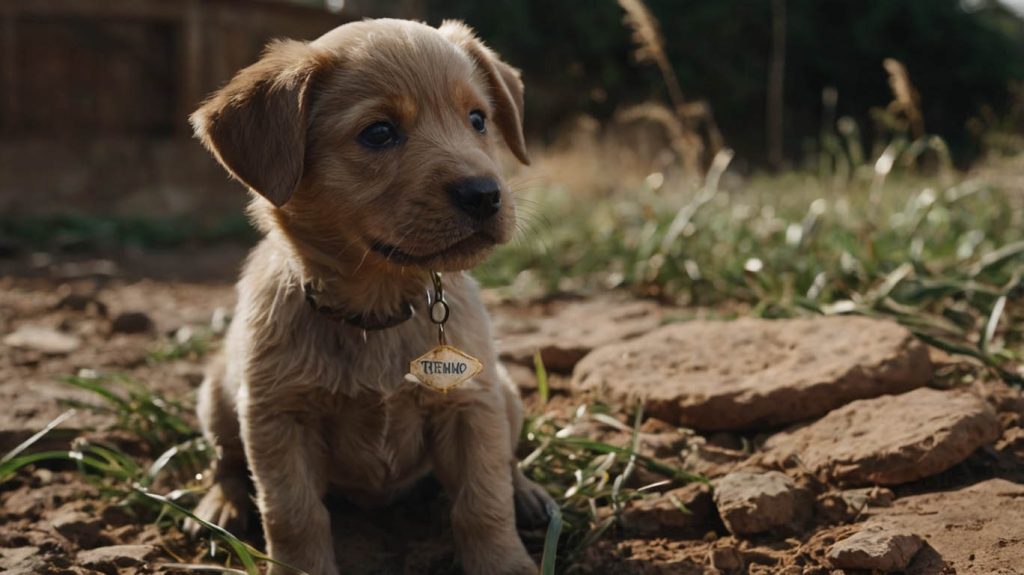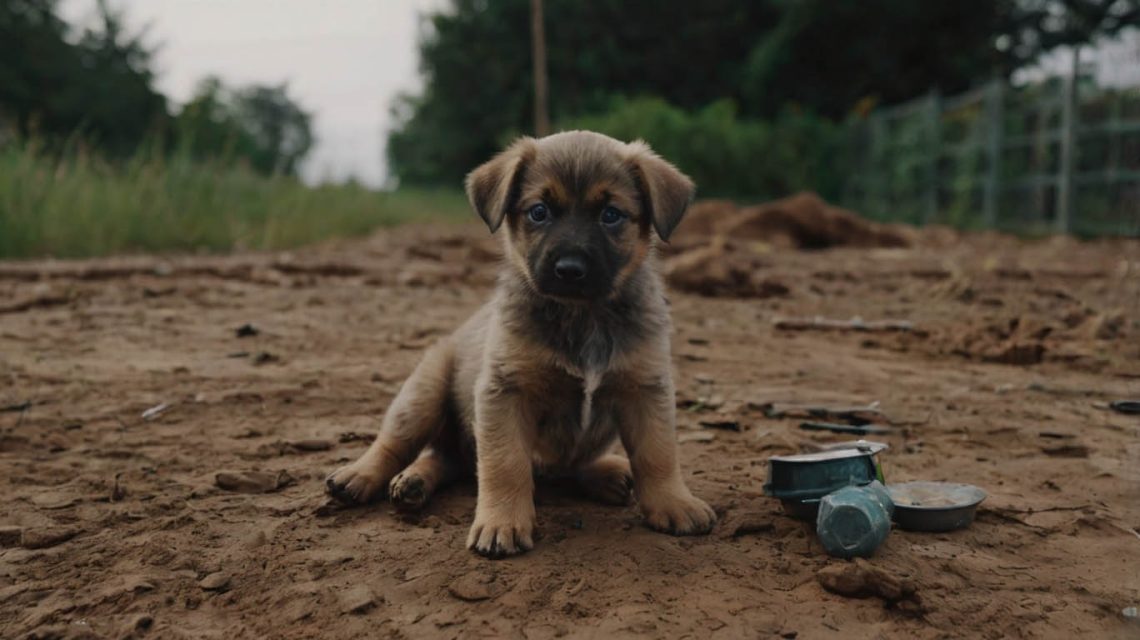Signs a Puppy is Dehydrated: The Ultimate Guide for Worried Owners
Chloe brought home Pip, a tiny, ten-week-old French Bulldog with more wrinkles than a roadmap and an energy level that defied physics. Their first week together was a whirlwind of puppy kisses, tiny snores, and house-training mishaps. On a surprisingly warm Saturday, they spent extra time playing fetch in the yard. Later that evening, Chloe noticed Pip wasn’t his usual, boisterous self. He lay limply in his bed, ignoring the crinkle of his favorite toy bag. Chloe initially thought he was just worn out. However, a nagging feeling prompted her to look closer. It was then she realized she might be seeing the first, subtle signs a puppy is dehydrated.
This scenario is a heart-stoppingly common one for new puppy parents. A puppy’s tiny body is a fragile, rapidly developing system. They are significantly more vulnerable to dehydration than adult dogs, and their condition can deteriorate with frightening speed.
Consequently, understanding the signs a puppy is dehydrated isn’t just helpful information—it is a fundamental and potentially life-saving skill. This comprehensive guide will walk you through every symptom, from the quietest whispers to the loudest alarms, and provide a clear plan of action. Therefore, you can act with confidence to protect the newest, most vulnerable member of your family.
Why Recognizing Signs a Puppy is Dehydrated is So Urgent
A puppy’s physiology makes them uniquely susceptible to fluid loss. Their small body mass, higher metabolism, and immature kidneys mean they lose water at a much faster rate than adult dogs.
Water is the foundation for every single process in their growing bodies:
- Temperature Regulation: Panting is how puppies cool down, a process that expels significant moisture.
- Nutrient Delivery: Water is the transport system that carries vital nutrients and oxygen to their developing cells, bones, and muscles.
- Digestion and Absorption: It’s essential for breaking down their nutrient-dense food.
- Toxin Removal: Water lubricates joints and empowers the kidneys to filter waste from the blood.
When dehydration sets in, these critical systems begin to fail. Even a seemingly minor fluid loss from a single bout of vomiting or diarrhea can be catastrophic for a small puppy. This can quickly lead to organ stress, shock, and, tragically, death. As a result, your ability to recognize the signs a puppy is dehydrated is your most powerful first line of defense.

The Unmistakable Signs a Puppy is Dehydrated to Identify
Dehydration is a progressive condition. The signs will become more obvious and dangerous as your puppy’s fluid deficit worsens. Learning to spot them at every stage is key.
Early Signs a Puppy is Dehydrated to Watch For
These are the first red flags. If you notice any of these, it’s time to pause, observe closely, and take immediate steps to encourage fluid intake.
- Lethargy and Low Energy: This is often the very first behavioral change. Is your normally hyperactive “land shark” suddenly quiet, unusually sleepy, or completely uninterested in playing? A sudden drop in their energy level is a major warning sign. This was the first clue Chloe had with Pip.
- Dry or Tacky Gums: A healthy puppy’s gums should be wet and slick like the inside of your cheek. Gently lift your puppy’s lip and touch their gums. If they feel sticky or tacky, it’s a clear indication that their body is already conserving water.
- Thick, Ropy Saliva: Instead of normal, watery drool, you might see thick, stringy saliva. This is another unmistakable sign that the body is reducing its fluid output.
- Loss of Appetite: A puppy that abruptly refuses food, even a favorite treat, often feels unwell. Dehydration is a very common cause of this sudden lack of interest in eating.
Catching these early signs a puppy is dehydrated allows for swift intervention, which can often resolve the problem before it becomes a medical emergency.
Advanced Signs a Puppy is Dehydrated Needing a Vet
If you observe any of the following symptoms, your puppy’s dehydration has progressed from mild to moderate or severe. This is a veterinary emergency.
- Sunken Eyes: This is a very grave sign. As the body loses fluid, the fatty tissue behind the eyeballs shrinks, causing the eyes to appear hollowed-out and sunken into the skull. They may also lose their bright, clear appearance.
- Loss of Skin Elasticity (The Turgor Test): This is a classic and definitive test for dehydration. Gently lift the skin on your puppy’s back, between their shoulder blades. In a well-hydrated puppy, the skin will snap back into place instantly. However, if the skin “tents” by returning to its normal position slowly, or not at all, it is one of the most serious signs a puppy is dehydrated.
- Delayed Capillary Refill Time (CRT): This test checks blood circulation. Gently press your finger on your puppy’s gums until they turn white. Remove your finger and time how long it takes for the pink color to return. In a healthy puppy, it should be under two seconds. If it takes longer, it signifies poor circulation, a dangerous consequence of dehydration.
- Vomiting or Diarrhea: While these are often the cause of dehydration, their continued presence creates a vicious cycle of fluid loss that a puppy cannot overcome on its own.
- Weakness or Collapse: In the most severe cases, a puppy may become too weak to stand or may collapse. This is a critical emergency signaling the onset of shock.

What Causes the Signs a Puppy is Dehydrated to Appear?
Understanding the root cause is just as important as recognizing the symptoms, as it is key to prevention.
Illness as a Primary Cause of Dehydration
Often, the signs a puppy is dehydrated are a secondary problem caused by an underlying illness. Their immature immune systems make them vulnerable.
- Gastrointestinal Upset: This is the most frequent and dangerous cause. Viruses like Canine Parvovirus are notorious for causing severe vomiting and diarrhea, leading to life-threatening dehydration in just a few hours.
- Fever: A puppy with a fever will pant more, losing excess fluid as their body tries to cool down.
Environmental and Behavioral Factors That Trigger Dehydration
Sometimes, the cause is simpler and directly related to the puppy’s environment.
- Heat and Overexertion: Puppies don’t have an “off” switch. They will play until they are exhausted, losing a tremendous amount of water through panting, especially on a warm day.
- Insufficient Water Access: This can happen easily. The water bowl might be empty, dirty, or in a place the puppy can’t easily reach.
Your Action Plan When You See Signs a Puppy is Dehydrated
Seeing these signs in your tiny companion is terrifying, but a clear plan will help you act swiftly and effectively.
First Aid for Mild Signs a Puppy is Dehydrated
If you’ve only noticed mild symptoms and your puppy is still alert, you can take immediate action while preparing to call your vet.
- Move to a Cool Place: Immediately bring your puppy into a cool, air-conditioned room.
- Offer Water: Provide a clean bowl of fresh, cool water. Do not force them to drink.
- Try Ice Chips: Many puppies are more interested in licking or crunching ice chips than drinking. This is a great way to get fluids into them slowly.
- Call Your Vet for Guidance: Do not give your puppy sports drinks or other human electrolyte solutions without explicit instructions from your vet. They can guide you on whether a pediatric solution is appropriate and provide the exact dosage.
When to Call the Vet Immediately
With puppies, the threshold for calling the vet is extremely low. You must seek immediate veterinary care if:
- Your puppy shows ANY of the advanced signs a puppy is dehydrated (sunken eyes, skin tenting, collapse).
- Your puppy has vomited or had diarrhea, even just once.
- Your puppy refuses to drink any water for more than a few hours.
- You suspect your puppy has been exposed to Parvovirus.
- When in doubt, always make the call. A vet can provide life-saving subcutaneous or intravenous (IV) fluids, which is the fastest and most effective way to rehydrate a puppy in crisis.
A Case Study Resolved: Chloe and Pip’s Story
Let’s return to Chloe and Pip. After seeing Pip’s lethargy, Chloe checked his gums and found them tacky. She then performed the skin turgor test; the skin was slow to return. Recognizing these as clear signs a puppy is dehydrated, she didn’t hesitate. She called her emergency vet, explained the symptoms, and was told to come in immediately. The vet confirmed Pip was moderately dehydrated and gave him subcutaneous fluids. He was back to his playful self by morning. The vet praised Chloe, telling her that her quick action saved Pip from a much more serious outcome.
Proactive Prevention: Stopping the First Signs a Puppy is Dehydrated
The best treatment is to prevent dehydration before it ever starts.
- Constant Access to Fresh Water: Ensure your puppy always has a clean, full bowl of water.
- Monitor Intake: Pay attention to how much your puppy normally drinks so you can spot a decrease.
- Manage Playtime: In warm weather, limit strenuous play to cooler parts of the day.
- Be Vigilant During Illness: If your puppy is sick, stay in close contact with your vet and monitor their hydration obsessively.
Your Puppy’s Life is in Your Hands
Your new puppy is completely dependent on you. Learning to recognize the signs a puppy is dehydrated is one of the most fundamental responsibilities of puppy ownership.
Don’t wait for an emergency. Get familiar with your puppy’s normal gums and skin today. If you see any of the signs discussed in this guide, trust your instincts and contact your veterinarian immediately. Share this article to empower other new puppy parents with this vital knowledge.


